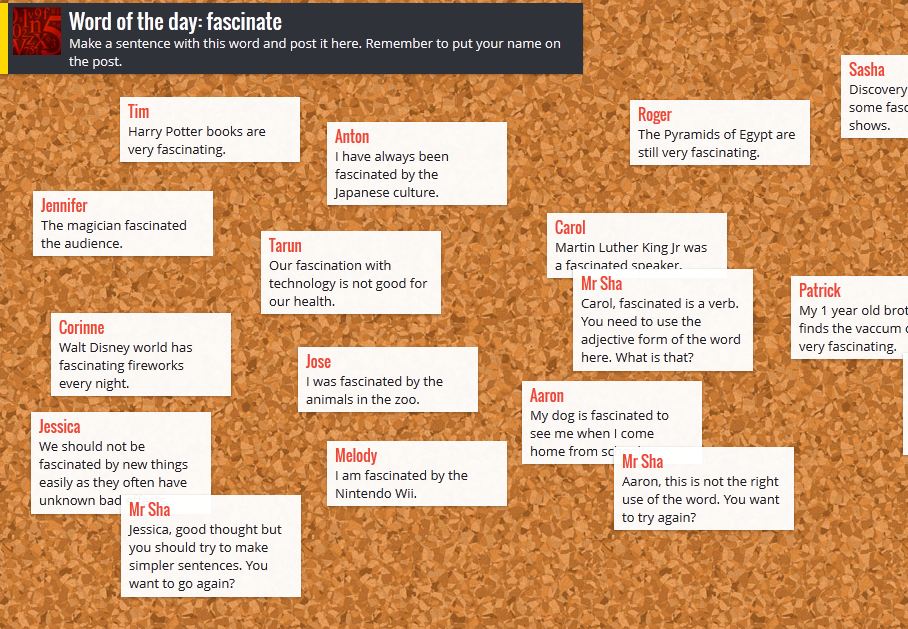In my Spanish classes, I love to use flip books to engage
students in note taking, practice activities. By creating flip books, students
have a complete resource to also use as a study guide for an assessment. Here's
a recent blog post which explains more!
 While maybe not my favorite activity, one of my favorite
ones that I've started doing this year is Visual Discovery. It involves having
students analyze powerful or interesting images as a means of teaching culture
and history (it's actually a technique used in Social Studies).
While maybe not my favorite activity, one of my favorite
ones that I've started doing this year is Visual Discovery. It involves having
students analyze powerful or interesting images as a means of teaching culture
and history (it's actually a technique used in Social Studies).
I do a game I call "Silla caliente" (Hot Seat)
when I want to review vocabulary. I split the class into two teams. I make a
presentation of all vocabulary without words, just a visual representation of
each. I put two seats in front of a screen facing the opposite direction. Each
team offers a contestant to play. A vocabulary word is posted after the
contestants sit. They cannot see the word. The goal of the game is to get the
person seated infront of the screen to say the vocabulary word
-Zachary Bissonnette
I love playing "Guess the Famous Person Using 20
Clues" with my students, then having them create their own clues for
additional people and finally finishing by having them research other famous
Hispanics/Francophones and doing presentations. Great combination of reading,
writing, speaking, grammar, and culture - plus it's really fun! Also good for no
prep sub plans.
 I just tried this for the first time a few days ago, and my
students really responded. This could be used for any sort of writing you want
your students to do... I was working on having my students write sentences
using the imperfect progressive with an interrupted preterite action. Your
students will need access to computers/tablets/mobile devices. Here is what I did....
I just tried this for the first time a few days ago, and my
students really responded. This could be used for any sort of writing you want
your students to do... I was working on having my students write sentences
using the imperfect progressive with an interrupted preterite action. Your
students will need access to computers/tablets/mobile devices. Here is what I did....1) I created a powerpoint with interesting images (mainly gifs, they love gifs!) to inspire them to write a sentence.... around 7 slides.
2) I created a open and editable padlet and shared with my students.
3) I projected 1 slide of the powerpoint, and students simultaneously wrote their descriptive sentences on the padlet.
4) After most of them were writing and didn't need the images anymore, I switched my projected screen to the padlet, and we looked at all of their sentences. As a class, we pointed out errors.... What is wrong in this particular sentence? How can we change it to be correct? I also pointed out exemplar sentences.
I asked the students after class if they enjoyed the activity and if they thought they got anything out of it, and they responded that they really liked seeing everyone's work all at once so they could see common errors.
If you would like to see my powerpoint, it is here: Be sure to download instead of viewing it though google drive so you can see all the gifs!
Using a webquest for clothing vocabulary is one of my favorites because it makes students
discover the vocabulary on their own. Instead of teaching a set of vocab words,
I give the students the words and they have to discover what the words mean by
looking at an online clothing website. The students are very engage “shopping”
and learning how to use context to discover meaning. The teacher can walk
around the monitor but the lesson is student centered!

No comments:
Post a Comment
Note: Only a member of this blog may post a comment.